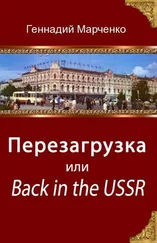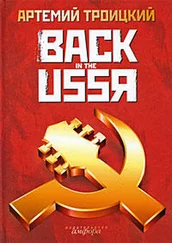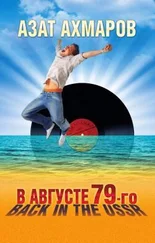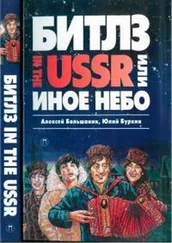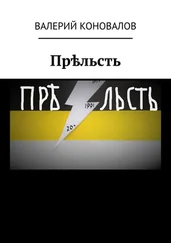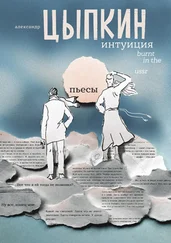Rainy days get me down. It’s boring and uncomfortable to sit in the tent for hours on end. I ask Yura and the others not to bring vodka but all the same I feel restless. To distract myself from my thoughts I carve pieces of wood into statuettes and decorate bottles with plastic telephone wires. I learned the technique in prison. With a hook made from a bicycle spoke I twist the plastic into pictures and designs. When I’ve finished I give the bottles to the beekeepers who are happy to take them home to their wives.
The mosquitoes annoy me, but I know from my experience in the taiga that the only way to defeat them is to take no notice. I have no net; I don’t want to shut myself off from the world around me. Just before rain, when the midges and mosquitoes become a real torment, I drive them away with the help of a beekeeper’s smoker. It is a simple can with holes punched in it and attached to a string. Inside I put some rotten wood and a piece of amadou fungus pulled from an old tree stump. When struck with a flint the amadou smoulders and lights the wood. Smoke billows from the can as I swing it like a church censer.
Just as I used never to tire of looking at the sea, so I sit for hours gazing across the blue undulations of the steppe. Sometimes a rare bustard hovers overhead, or a distant herd of boars runs through one of the gullies that scar the landscape. Seven centuries ago Mongol horsemen, not knowing how to live in the forest, camped on these grasslands. A lorry raises dust on a far-off road. I half close my eyes and imagine I see horsemen of the Golden Horde galloping along the crest of a ridge.
Summer ends. I pack up my tent with sadness. Yura drives me back into town. Each beekeeper gives me a kilo of honey and a small sum of money. I have nowhere to go except the hostel. My former plant will not take me back because of my poor work record. I curse them all to hell and exchange my honey for samogon.
There is nothing but Benedictine on the shelf of shop No. 28.
“Let’s buy a bottle,” I suggest.
My mate Tarzan explodes: “Are you crazy? That’s a women’s drink. Let’s get some cucumber face lotion from Auntie Dusya.”
“But Benedictine’s stronger than vodka. I used to drink it in Riga.”
“Okay, you win.”
Tarzan and I wander off to the park with our Benedictine. We are on our third bottle when Pashka Plaksin joins us. Pashka is famous in Chapaevsk as an alcoholic and a master-sewer of felt boots. As there is no chance of buying good boots in the shops, many people make them on the quiet. Pashka’s boots are the best in town. To own a pair is like having a Pierre Cardin suit in your wardrobe. Those who want to jump the queue will slip him a bottle of something. This is how Pashka became a drunkard. In the mornings he shakes so much he can’t even pull up a glass with his scarf. Someone has to slip a stick between his lips and pour the wine straight down his throat.
Pashka produces two bottles of pure surgical spirit donated by a grateful customer. The next thing I know is an agonising pain in my head and back. I open my eyes to see someone giving me an injection.
“What did you drink?” a voice asks.
“Surgical spirit,” I rasp.
“You can’t get that in the chemists. Where did it come from?”
“A friend gave it to me.”
“That was no friend. If the police hadn’t found you and brought you here you would have died. That was industrial spirit and it has burned up your kidneys.”
It seems that after leaving Tarzan and Pashka I fell into a snowdrift. Some passing police pulled me out and hauled me in to the sobering-up station. A nurse declared me to be on the point of death so they called an ambulance. It would have spoiled their records if yet another drunk died in their charge.
The hospital washes out my kidneys and discharges me. Sober again, I am taken on by a plastics factory. Now I remember how much I hate the working life. When I was drinking the only problem I faced was how to get over my hangovers; now I’m working like a donkey for nothing in return. I hardly earn enough to buy bread. Most of my pay goes to the sobering-up station which I have visited 14 times since returning from the forest. Soon I stop going to work; it seems futile.
The local police are sick of the sight of me. The next time they pick me up they give me a beating and put me on a charge of drunken hooliganism. They wait five days for my black eyes to fade, but even then the judge at my trial asks: “What happened to your face?”
“A bag of fists fell on my head.”
The judge decides I am capable of responding to treatment and sentences me to two years in an LTP. [24] A punitive treatment centre: basically a labour camp for alcoholics who were also supposed to receive treatment.
It lies about thirty miles away, beside the village of Spiridonovka. Life in the LTP is easier than in other camps for we are classed as sick men rather than criminals. Our guards are unarmed and letters are not censored.
The village of Spiridonovka is a miserable collection of hovels surrounded by a strict-regime camp and the LTP. While the village children play ‘prisoners and warders,’ driving each other in convoys through the mud, their parents work in the camps. The villagers dedicate themselves to taking care of the prisoners, smuggling in vodka, cigarettes and an astronomical amount of tea.
Treatment is compulsory but I categorically refuse to take Antabuse, despite a promise of time off my sentence if I do so. In the past I’ve swallowed it voluntarily; I won’t have it forced down my throat. They send me to the isolator a few times then give up on me.
The doctor in charge of our treatment is a sadist called Bityutskaya. “You will not receive parcels here. You’ve already caused enough suffering to your families,” she announces. This doesn’t make much difference to me as I have no one to visit me or send in food. Later many of us paint ‘ In Vino Veritas ’ on the back of our jackets. When the doctor walks past we turn our backs so she can fully appreciate the effects of her treatment.
As I walk into the barracks with the other newcomers an older man comes up and introduces himself: “I’m Vassya-the-thief-alias-Honeycake. I’ve been through Rome and the Crimea, fire and water, brass trumpets and devil’s teeth. I’m the orderly around here, so any of you who fancies a cushy job has to clear it with me first, okay?”
Vassya gives us the once over. Spotting a defeated-looking country lad, he asks: “You there, what’s your name?”

“Trofim Ivanich.”
“You look like an intelligent chap, Trofim. Give me a goose and you can guard the stationery store.”
Trofim persuades his wife to smuggle in a goose. She probably feels guilty for having committed him to the LTP. Trofim is delighted to be given such an easy job and goes off to perform it conscientiously.
At evening roll-call there’s one person missing. Ten recounts establish that the absent man is Trofim.
“Where the hell is he?” asks the guard.
“Working,” someone remembers.
“Where?”
“Guarding the shop,” replies an innocent newcomer.
“Who told him to do that?”
“One of the orderlies,” replies another innocent.
No one can prove anything against Vassya; the goose has already been eaten. Trofim has received his first lesson in camp life.
Unlike many inmates, Vassya is fond of talking about his past: “I grew up on a farm in the Kuban. When the Nazis arrived in ’42 I went to work for them as a groom.” He pauses. “Don’t turn up your noses, brothers. I had to eat. They needed me to look after their horses so they took me with them when they retreated. We ended up in Hungary. By then it was obvious to any idiot that the Germans were losing the war. I slipped away and joined up with our boys in Poland.
Читать дальше
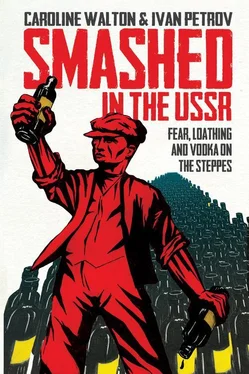

![Геннадий Марченко - Перезагрузка или Back in the Ussr. Книга 1. [СИ]](/books/53319/gennadij-marchenko-perezagruzka-ili-back-in-the-uss-thumb.webp)
